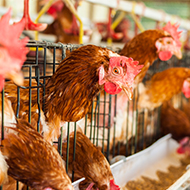Cats Protection welcomes calls for Scottish microchip law
Cats Protection describes the law as a 'game-changer' for cat welfare in Scotland.
Cats Protection has welcomed a report that supports compulsory microchipping and the registration of owned cats in Scotland.
The report, published by the Scottish Animal Welfare Commission (SAWC), suggests that legislation and public education could improve cat welfare in the country.
Microchipping for dogs and equines has been a legal requirement in Scotland since 2016 and 2022 respectively. Due to a lack of a consistent database for microchipped cats, the government has yet to make microchipping a requirement for cat ownership.
In June 2024, legislation in England made it a requirement for all pet cats over the age of 20 weeks to be microchipped. Since this is a devolved matter, the legislation was not progressed to Scotland or Northern Ireland.
Cats Protection, alongside other animal welfare organisations, has continued to advocate for compulsory microchipping to become a legal requirement across the UK.
The SAWC says that its evidence-based report was based on concerns about cat breeding, population management and responsible cat ownership.
The report concluded that compulsory microchipping would have direct benefits if a domestic cat becomes lost, stolen or is found injured. It also suggested that a thorough database would have secondary benefits for shelters and improve understanding of the impact of unneutered pet cats on population numbers.
Cats Protection has welcomed the report’s findings and has urged Scottish ministers to prioritise new legislation. It says that, with Scottish microchipping rates the UK’s second lowest at 72 per cent, mandatory microchipping would reduce the burden of its teams at animal shelters.
Alice Palombo, advocacy officer at Cats Protection, said: “The combination of compulsory microchipping and a centralised registration system will be a game-changer for cat welfare in Scotland. A public education initiative will be crucial in raising awareness among cat owners and the wider public about the importance of responsible pet ownership.
“We hope Scottish ministers do take action by implementing these proposals as soon as possible, which we believe are essential for improving cat welfare.”
Image © Shutterstock



 An Avian Influenza Prevention Zone (AIPZ) has been introduced across Wales.
An Avian Influenza Prevention Zone (AIPZ) has been introduced across Wales.